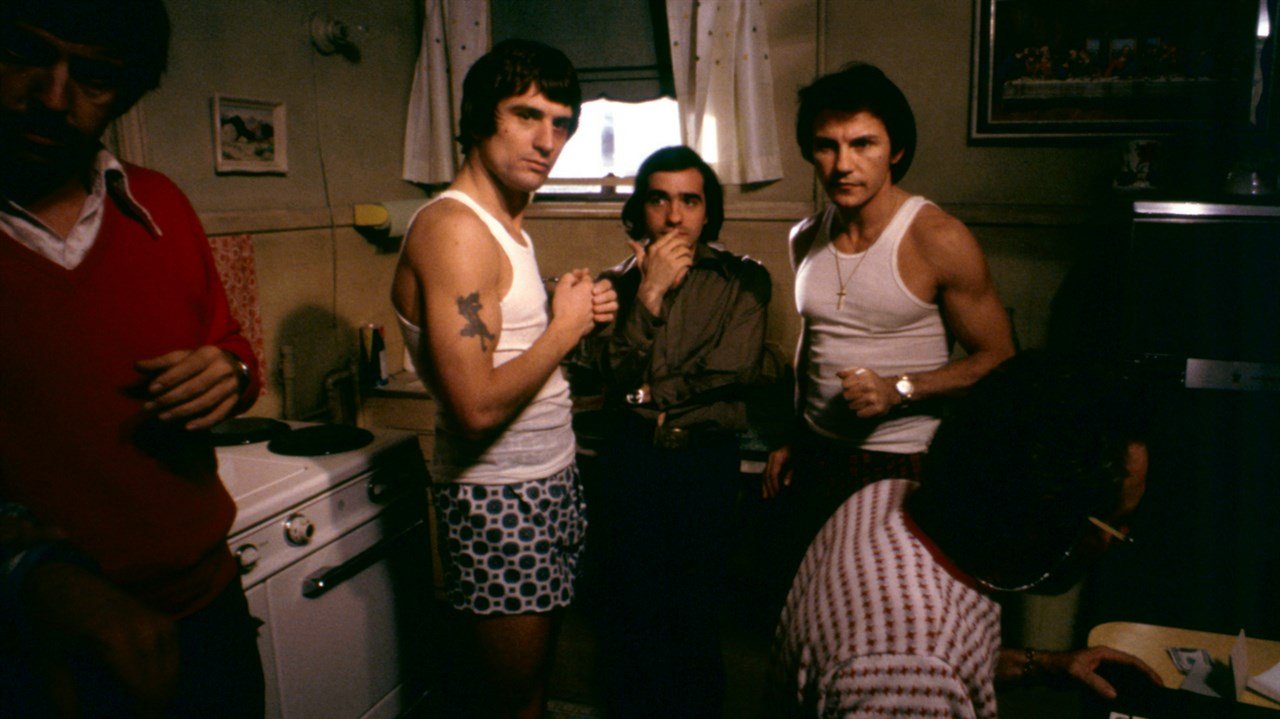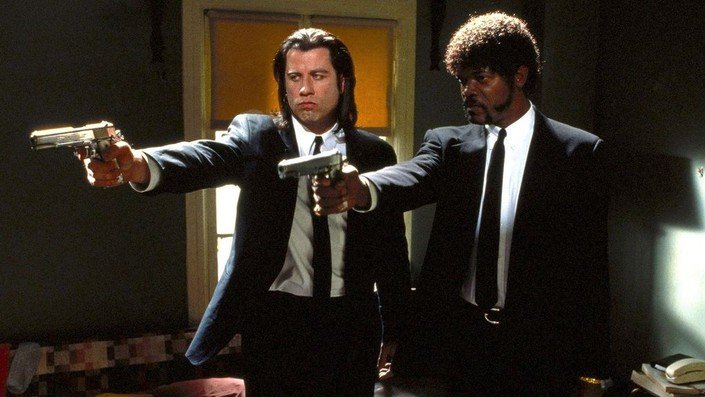
Martin Scorsese is undoubtedly one of the most revered and influential filmmakers of our time. With a career spanning over five decades, the American director has left an indelible mark on the world of cinema, crafting some of the most iconic and groundbreaking films in movie history. From the gritty streets of New York to the glitz and glamour of Hollywood, Scorsese’s filmography is a testament to his unparalleled storytelling abilities and his unwavering commitment to the art of filmmaking.
In this in-depth blog post, we’ll delve into Scorsese’s cinematic masterpieces, exploring the themes, techniques, and performances that have cemented his status as a true cinematic genius. Join us as we countdown the top 10 Martin Scorsese films, from the lesser-known gems to the undisputed classics that have left an indelible mark on the industry.
Scorsese’s Cinematic Influences: A Lifelong Passion for Film
Before we dive into the rankings, it’s important to acknowledge the profound impact that cinema has had on Scorsese’s life and career. The director was a true cinephile long before he stepped behind the camera, and his love for the art form has only grown stronger over the years.
To fully appreciate Scorsese’s filmography, it’s worth exploring the two documentary films: A Personal Journey with Martin Scorsese Through American Movies and My Voyage to Italy. These insightful documentaries offer a rare glimpse into the director’s cinematic influences and the formative experiences that have shaped his unique visual style and storytelling approach.
In A Personal Journey with Martin Scorsese Through American Movies, the director takes viewers on a comprehensive journey through the history of American cinema, exploring the various genres, filmmakers, and industry trends that have left an indelible mark on the art form. This documentary is a must-watch for any cinephile, as it provides a deep understanding of the cultural and artistic context that has informed Scorsese’s own work.
Similarly, My Voyage to Italy delves into the director’s fascination with Italian cinema, a cinematic tradition that has had a profound influence on his filmmaking style and thematic preoccupations. By exploring the works of Italian masters like Federico Fellini, Luchino Visconti, and Michelangelo Antonioni, Scorsese offers a unique perspective on the enduring legacy of Italian cinema and its impact on his own creative vision.
These documentaries serve as essential viewing for anyone seeking to fully comprehend the depth and breadth of Scorsese’s cinematic influences, and the ways in which his lifelong passion for film has shaped his remarkable body of work.
Ranking Martin Scorsese’s Top 10 Films: From the Worst to the Best
Now, let’s dive into the main event – the countdown of Martin Scorsese’s top 10 films, ranked from the “worst” to the best. It’s important to note that even Scorsese’s “worst” films are still cinematic masterpieces. Each of these films showcases the director’s unparalleled storytelling abilities, his mastery of visual language, and his unwavering commitment to exploring the human condition.
10. Mean Streets (1973)
We begin our countdown with Mean Streets, a film that is Scorsese’s “great debut” and the beginning of his illustrious career. While the director was still developing his signature style and thematic preoccupations, Mean Streets is a powerful and gritty exploration of the Italian-American experience, featuring standout performances from Robert De Niro and Harvey Keitel.
Mean Streets showcases Scorsese’s early experimentation with the themes and visual language that would become hallmarks of his filmography, from the director’s fascination with the complexities of morality to his innovative use of sound and music. Though not yet the fully realized cinematic visionary he would become, Scorsese’s debut feature film is a testament to his immense talent and the promise of greatness to come.
9. Hugo (2011)
In stark contrast to the gritty realism of Mean Streets, Scorsese’s Hugo represents a bold departure for the director, as he embraces the magic of early cinema and the wonder of technological innovation. The film explores the birth of the cinematic medium, as well as the director’s playful experimentation with the then-emerging 3D technology.
What makes Hugo so compelling is the way it allows Scorsese to indulge his lifelong passion for film history, while also showcasing his ability to craft a visually stunning and emotionally resonant story. The director’s reverence for the pioneers of cinema is palpable, and the film’s celebration of the power of storytelling and the transformative potential of the medium is a testament to Scorsese’s enduring love for the art form.
8. The Aviator (2004)
Scorsese’s fascination with larger-than-life personalities and their personal demons is on full display in The Aviator, a biopic that delves into the life of the eccentric and deeply troubled aviation pioneer, Howard Hughes. The director’s ability to immerse the audience in the mind of his protagonists is a hallmark of his filmmaking, and The Aviator is a prime example of this skill.
With Leonardo DiCaprio delivering a tour-de-force performance as Hughes, Scorsese crafts a captivating portrait of a man consumed by his own ambition, obsession, and mental illness. The film’s lavish production values and Scorsese’s masterful handling of the material cement its status as one of the director’s most visually and thematically compelling works.
7. The Irishman (2019)
The Irishman is a landmark in Scorsese’s career, as well as the industry as a whole. As a collaboration with Netflix, the film represents the director’s willingness to embrace new modes of filmmaking and distribution, while still maintaining his unwavering commitment to his unique cinematic vision.
What makes The Irishman so compelling is the way it reflects Scorsese’s own artistic and personal evolution. The film’s contemplative pace and its focus on the themes of aging, regret, and the consequences of a life steeped in violence and crime are a testament to the director’s maturity and his desire to explore new facets of the human experience. With powerhouse performances from Robert De Niro, Al Pacino, and Joe Pesci, The Irishman is a cinematic masterclass that solidifies Scorsese’s status as a true master of his craft.
6. The Departed (2006)
Scorsese’s The Departed is a gripping crime thriller that showcases the director’s mastery of genre storytelling. The film’s cat-and-mouse dynamic between the undercover cop (Leonardo DiCaprio) and the mob informant (Matt Damon) creates a palpable sense of tension and suspense that keeps the audience on the edge of their seats.
What sets The Departed apart is Scorsese’s ability to infuse the genre trappings with his signature thematic concerns, exploring the moral ambiguities of the characters and the ways in which power, corruption, and identity can shape an individual’s choices and actions. The film’s stellar ensemble cast, including Jack Nicholson’s unforgettable performance, and Scorsese’s impeccable direction make The Departed one of the director’s most commercially successful and critically acclaimed works.
5. The Wolf of Wall Street (2013)
The Wolf of Wall Street is a testament to the film’s sheer audacity and the director’s willingness to push the boundaries of his craft. Scorsese’s exploration of the excesses and moral decay of the financial industry is a dizzying and exhilarating cinematic experience, anchored by Leonardo DiCaprio’s unforgettable performance as the charismatic and morally bankrupt Jordan Belfort.
What makes The Wolf of Wall Street so compelling is the way Scorsese subverts the audience’s expectations, creating a world of glamour and excess that ultimately reveals the hollowness and corruption at its core. The film’s breakneck pacing, coupled with the director’s masterful use of music and visual storytelling, creates a sense of intoxicating energy that mirrors the characters’ own descent into debauchery and greed.
4. Casino (1995)
Casino is one of Scorsese’s most underrated masterpieces, a crime drama that delves into the director’s fascination with the unique culture and power dynamics of Las Vegas. While the film may share thematic and stylistic similarities with Scorsese’s previous work, it represents a distinct and compelling exploration of the director’s cinematic vision.
What sets Casino apart is the way Scorsese uses the film’s setting to create a heightened sense of tension and volatility, as the characters navigate the cutthroat world of organized crime and the relentless pursuit of wealth and power. The director’s innovative use of camera angles and framing, as well as his masterful handling of the film’s ensemble cast, including standout performances from Robert De Niro and Joe Pesci, cement Casino as a true Scorsese classic.
3. Taxi Driver (1976)
Taxi Driver is one of Scorsese’s most iconic and influential works, a searing character study that delves into the psyche of a deeply troubled and alienated individual. The film’s exploration of the impact of war and societal upheaval on the human mind is a testament to Scorsese’s ability to craft universally resonant stories that are deeply rooted in the cultural and historical context of their time.
What makes Taxi Driver so compelling is the way Scorsese immerses the audience in the perspective of the film’s protagonist, Travis Bickle, played with mesmerizing intensity by Robert De Niro. The director’s masterful control of the film’s visual language, coupled with the haunting score and the gritty depiction of New York City, create a sense of unease and disorientation that mirrors Bickle’s own descent into madness.
2. Raging Bull (1980)
The nuanced differences between Scorsese’s approach to character-driven narratives and his handling of real-life stories are highlighted by the comparison of Taxi Driver and Raging Bull. While Taxi Driver is a deeply subjective exploration of a fictional character’s psyche, Raging Bull is a powerful and unflinching portrait of the rise and fall of a real-life figure, the boxer Jake LaMotta.
What makes Raging Bull such a cinematic masterpiece is the way Scorsese captures the brutality and physicality of the sport, while also delving into the emotional and psychological turmoil that drives LaMotta’s self-destructive behavior. The director’s innovative use of black-and-white cinematography and his masterful handling of the film’s visceral fight sequences create a sense of immediacy and intensity that is unparalleled in the sports drama genre.
1. Goodfellas (1990)
Goodfellas is one of Scorsese’s most iconic and influential works, a cinematic achievement that perfectly encapsulates the director’s mastery of the crime genre and his ability to craft deeply compelling character-driven narratives.
What makes Goodfellas so remarkable is the way Scorsese seamlessly blends the gritty realism of the Italian-American mob experience with his signature stylistic flourishes, creating a film that is both a gripping crime drama and a poignant exploration of the human condition. The director’s use of voiceover narration, his innovative editing techniques, and his masterful handling of the film’s ensemble cast, including standout performances from Robert De Niro, Joe Pesci, and Ray Liotta, all contribute to the film’s enduring legacy as a true cinematic masterpiece.
Ultimately, Goodfellas stands as a testament to Scorsese’s unparalleled storytelling abilities, his deep understanding of the human experience, and his unwavering commitment to the art of filmmaking. It is a film that not only solidifies the director’s status as a true cinematic genius but also serves as a timeless and indelible contribution to the medium.
Scorsese’s Enduring Legacy
As we’ve explored in this in-depth blog post, Martin Scorsese’s filmography is a testament to his unparalleled talent and his enduring impact on the world of cinema. From the gritty realism of Mean Streets to the lavish grandeur of The Aviator, the director’s body of work is a tapestry of diverse stories, compelling characters, and innovative visual storytelling.
Whether you’re a longtime fan of Scorsese’s work or a newcomer to his films, this ranking of his top 10 movies offers a comprehensive and insightful look into the director’s cinematic genius. By exploring the themes, techniques, and performances that have defined his career, we hope to have provided a deeper appreciation for the artistry and the cultural significance of Scorsese’s filmmaking.
In the end, Martin Scorsese’s legacy as a cinematic visionary is secure, and his influence on the art form will continue to be felt for generations to come. Whether you’re revisiting his classics or discovering his work for the first time, the power and the artistry of Scorsese’s films are sure to leave a lasting impression on all who experience them.


